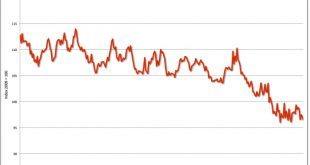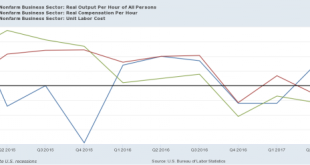Strategies in relation to complexities: From neoclassical cost-benefit analysis to positional analysisPeter SöderbaumIn this essay neoclassical Cost-Benefit Analysis (CBA) is criticized as beinng too simplistic and also too specific in ideological terms. Positional Analysis (PA) is advocated as an alternative based on a definition of economics in terms of multidimensional analysis and … More 13 Comments A Cognitive Behavioral Modelling for Coping with Intractable Complex Phenomena...
Read More »Robert Lucas — nonsense on stilts
from Lars Syll In Michel De Vroey’s version of the history of macroeconomics, Robert Lucas’ declaration of the need for macroeconomics to be pursued only within ‘equilibrium discipline’ and declaring equilibrium to exist as a postulate, is hailed as a ‘Copernican revolution.’ Equilibrium is not to be considered something that characterises real economies, but rather ‘a property of the way we look at things.’ De Vroey — approvingly — notices that this — as well as Lucas’ banning of...
Read More »Thomas Mayer on the ideal European Central Bank
We’re publishing some expert ideas about the future of the ECB (and hence Euro money). Two days ago some ideas of Willem Buiter were published, yesterday we published some ideas from Richard Werner. Today some ideas by Thomas Mayer. Beware the last sentence. EMU is incomplete and dysfunctional The European Monetary Union (EMU) is incomplete and dysfunctional. First, it is incomplete, because the quality of book money created by banks through credit extension differs from country to...
Read More »How Uber money dominates and distorts economic research on ride-hailing platforms
from Norbert Häring Ride-hailing platform operator Uber is often accused of undermining labor market regulations and of overpricing in times of peak demand by “surge prcies”. Uber counters such accusations not only with high-profile lobbyists, but also with the help of top-notch economists, who cooperate in exchange for exclusive data and lucrative consultancy assignments. Even reputable journals publish such sponsored analyisis as if it was science. A recent paper by renowned MIT...
Read More »How low can it go?
from David Ruccio The United States is now more than eight years out from the end of the Great Recession and the one-side nature of the recovery is, or at least should be, clear for all to see. Even as unemployment has dipped below the so-called “natural rate,” workers are far from recovering all they’ve last in the past decade. According to the official data illustrated in the chart above, the labor share of national income remains just above the lowest level it reached in the entire...
Read More »Richard Werner on the Ideal ‘European’ Central Bank
As I stated yesterday we will publish some ideas about the future of the ECB. Yesterday some ideas of Willem Buiter were published. He wanted to abolish national central banks, to change the mandate, more transparency and an end to the prohibition of monetary financing. Today: Richard Werner. He warns us that it’s not just about the central bank but also about the ‘normal’ banks. More localism is needed. And the ‘tool’ credit guidance plus more localized banking may be more important...
Read More »Tax cuts boost growth, and other things they tell children
from Dean Baker It is a bit incredible that we are again being told that tax cuts directed primarily toward the wealthy will create a surge of investment and growth, thereby benefitting everyone. The Republicans may have the power to push their tax cut through Congress, but the claim that ordinary workers will benefit is not the sort of thing that serious people should take seriously. The GOP’s basic story is that a cut in the corporate income tax will lead to a huge burst of investment....
Read More »Willem Buiter on the ideal European Central Bank
The future of Europe is at stake. Yesterday, the European commission published a Roadmap for deepening Europe’s Economic and Monetary Union. coincidentally, the German Handelsblatt ‘EZB Schattenrat’ (‘ECB shadow council’, of which I’m a member) today discussed the ideal European Central Bank. The coming days I will post some (written) remarks made by members of the shadow council as well as some stuff relating to the Roadmap. No mention will be made of individual verbal remarks. Recurring...
Read More »Whose recovery?
from David Ruccio If you read the business press in the United States (e.g., the Wall Street Journal), you’ll find something along the lines of the following argument: the fact that U.S. worker productivity rebounded in the third quarter while hourly wages rose moderately is a sign “the economy is strengthening.” But look at the numbers. Nonfarm business sector productivity (the blue line in the chart above) rose 1.5 percent (from the same quarter a year ago) while real hourly...
Read More »Real tax reform?
from Peter Radford OK, let’s all calm down. The Republican tax plan is now in its last stages of design. The two versions that exist need to be stitched together and then the compromise version passed in both houses of Congress. The law as we currently know it is a classic piece of plutocratic largesse. It will fail in its supposed intentions: it will not do much at all for the economy. It gives rich people and large corporations big dollops of cash and a slew of new loopholes to feather...
Read More » Real-World Economics Review
Real-World Economics Review



